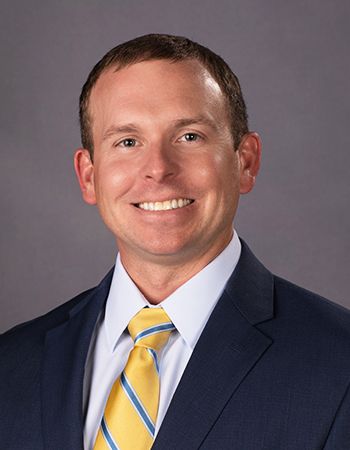
Repetitive Motion and Shoulder Injuries
Repetitive Motion and Shoulder Injuries
Your shoulder is a complex joint that gives you a versatile range of motion, letting you throw a ball, wash your hair, and hug your loved ones. But that same joint versatility also increases your risk for developing chronic shoulder pain, particularly if you have a job that requires you to repeat the same motions over and over throughout your workday.
Pain or injury from repetitive use may result from manual labor jobs that require you to pick up and move heavy objects or lift your arms over your head. Repetitive use can also lead to strains and sprains of one or more of the muscles that make up the shoulder joint. The more you use your shoulder, the worse these strains can become until the tissues begin to tear or rupture.
What to look for
Overexerting your shoulder joint with repetitive movements can cause persistent pain, along with other symptoms including:
● Numbness
● Tingling
● Burning
● Weakness
● Loss of dexterity
Over time, these symptoms can worsen and will likely require treatment to prevent permanent damage to your shoulder and the need for surgery.
How repetitive use injuries happen
If your daily work activities include any of these repeated motions, you should probably watch for symptoms of overuse:
● Lifting and pushing. While these may be more common among factory, construction, and warehouse workers, office workers and others who do not do much manual labor may still suffer a shoulder injury from picking up a box of office supplies or moving a computer or furniture.
● Holding awkward positions. Roofers, construction workers, and plumbers are just a few workers who must regularly work in awkward positions (think unusual angles or lots of overhead reaching).
● Repeating movements. Factory workers, construction workers, roofers, drywall installers, and painters are skilled laborers who are subject to repetitive motions. Less obvious are cashiers, restaurant workers, and office workers, who may also be at serious risk of suffering this type of shoulder injury.
● Using power tools and equipment. The use of power tools or heavy machinery can involve both repetitive motions and vibrations from the equipment that cause shoulder injury over time.
Possible long-term impacts
Unlike an injury from a fall or an accident, repetitive use injuries typically occur over time and may vary from mild strains and sprains to much more serious injuries that could require surgery. Common shoulder injuries caused by repetitive use at work include:
● Rotator cuff tears. Tears of the rotator cuff, technically a whole group of muscles and tendons that stabilize the shoulder, are common soft tissue injuries that can cause arm weakness, difficulty raising the arm, a dull ache in the shoulder, and even difficulty sleeping. Treatments typically start out conservatively with ice, pain medication, and physical therapy. If the injury does not heal, it may require surgery after other treatments have been tried.
● Impingement. Shoulder impingement is a common injury caused by raising your hands above your shoulders, which can irritate the tendons of the rotator cuff muscles. This can cause pain, shoulder weakness, and difficulty raising the arm. Treatment usually involves icing the injury, medication to manage pain, and a physical therapy program.
● Shoulder dislocation. Shoulder dislocation occurs when the upper arm pops out of the shoulder socket, which can make the person more prone to future dislocations. Immobilization, physical therapy, and surgery are some treatment options.
● Bursitis. Bursitis is the painful inflammation that affects the small, fluid-filled sacs known as bursae that cushion the muscles, tendons, and ligaments surrounding the shoulder. Symptoms can include pain, swelling and red appearance, the inability to move your shoulder, and a fever. Medications, physical therapy, cortisone injections, and rest are common treatments. In rare situations, surgery to drain the bursae may be needed.
Work with an expert
If you notice any early indications of shoulder problems – or experience a traumatic injury – it’s important to work closely with an orthopaedic specialist. Dr. Justin Hallock, one of the specialists at DOC Orthopaedics and Sports Medicine in Decatur and Hartselle, is not only board certified in orthopaedic surgery, he also is fellowship trained in orthopaedic surgery specializing in sports medicine, including open and arthroscopic treatment of the shoulder. He provides both non-surgical and surgical care of all orthopaedic ailments. Dr. Hallock’s extensive training and personalized approach to patient care means his patients enjoy thorough treatment and quick recovery so they can get back to normal activities.
Since 1972, the specialists at DOC Orthopaedics and Sports Medicine have been committed to providing exceptional orthopaedic care through innovative techniques, quality services, patient communication and education. With specialties ranging from general orthopaedics and physical therapy to sports medicine, joint replacement and more, the doctors at DOC Orthopaedics and Sports Medicine can provide local expert care for any orthopaedic disorder or injury and help put your life back in motion.

